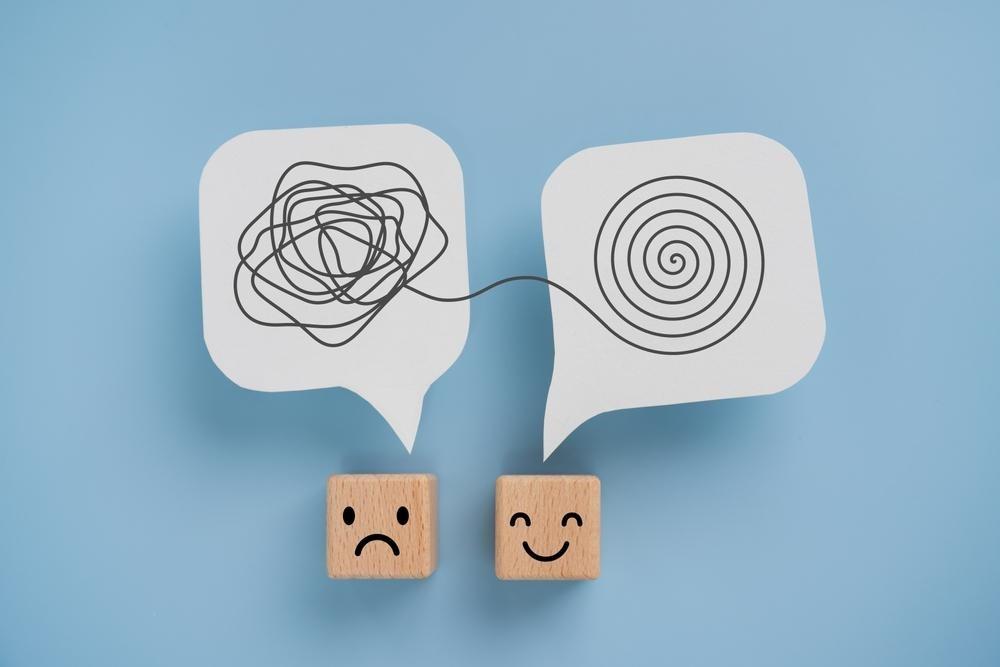Are you often torn between decisions, ruminating on the past, or worrying about the future? When your mind is caught in constant internal conflict, that’s mental exhaustion. This kind of mental fatigue can negatively affect bodily systems such as the digestive, cardiovascular, and immune systems.
Manifestations of Mental Exhaustion
In day-to-day life, everyone experiences mental fatigue to some extent. Mental exhaustion is a state in which our minds are constantly drained because of stress, overthinking, and internal conflicts.- Constant Overthinking and Worrying: You may be constantly wrestling with a decision, weighing the pros and cons repeatedly, unable to stop thinking about it, yet unable to make any decisions, and even doubting the viability of any decision you make. You may recall the mistakes of the past or worry about the unpredictability of the future. You get caught up in a cycle of thinking that drains your mental energy but doesn’t lead to any real solutions.
- Self-Doubt: You may often question your ability or the value of life and feel that you are not doing well enough.
- Difficulty Concentrating: Your brain is persistently occupied with the noise of complicated thinking, making you unable to concentrate on dealing with daily things.
- Anxiety and Fatigue: Even without engaging in a lot of physical activity, long-term inner conflicts still make you feel exhausted.
- Sleep Problems: Mental exhaustion can easily lead to insomnia, or you still feel you have not had enough rest after waking up.
Causes of Mental Exhaustion
The causes of mental exhaustion can be both physical and mental.Physical
- Imbalance in Neurotransmitters: When the levels of neurotransmitters such as dopamine, serotonin, and norepinephrine in the brain become imbalanced, it can affect emotional regulation. This imbalance can lead to negative thought patterns, making people more susceptible to mental exhaustion. Patients with insufficient methylation often experience this condition.
- Too Much Pressure Hormones: Prolonged exposure to stress can lead to elevated cortisol levels in our bodies, negatively affecting brain function and emotional regulation.
- Insufficient Sleep: Poor sleep quality will also affect the brain’s ability to repair and accelerate mental exhaustion.
Psychological
- Perfectionist Tendency: Perfectionists often set a high standard for themselves and others, fearing failure or mistakes. Their tendency to obsess over details can lead to prolonged mental exhaustion.
- Excessive Reflection and Self-Criticism: Excessive reflection and self-criticism often involve frequently revisiting past experiences and questioning yourself. Overthinking issues can lead to internal conflicts and increase feelings of mental fatigue.
Social
In today’s society, success is often judged by material possessions, such as owning a car, a house, or luxury items. This focus can create a culture of comparison, leading to feelings of inadequacy and increasing mental fatigue.
Additionally, navigating interpersonal relationships—with differing opinions, conflicts, and personalities—can further contribute to emotional and mental strain.
Spiritual
Spiritual factors also play a role in mental exhaustion. When a person feels unsure of life’s meaning and cannot align with their inner beliefs and values, it can intensify deep-seated mental anxiety and contribute to this internal struggle.Mental Exhaustion Harms the Body
Mental exhaustion affects more than just mental health. It also hurts different organs. The following systems may be affected by mental fatigue.1. Cardiovascular
Continuous internal conflict and pressure can cause hypertension and stroke and even increase the incidence of heart disease. In 2023, a study of nearly 600,000 people by Johns Hopkins University showed that depression and poor mental health were associated with cardiovascular disease (CVD) and suboptimal cardiovascular health (CVH) in young people. Researchers pointed out that although this association is likely bidirectional, prioritizing mental health may help reduce CVD risk and improve CVH in young adults.2. Gastrointestinal
Many people experience gastrointestinal disturbances during periods of mental strain. Studies have shown that stress and depression may induce functional indigestion and irritable bowel syndrome (IBS).3. Immune System
Pressure can inhibit immune function, degrade immunity, increase vulnerability to diseases, and cause chronic inflammation. Studies have found that social stressors accelerate immune aging, which is associated with organ system aging and cancer.4. Nervous System
Prolonged mental exhaustion affects memory and cognitive functions and even causes anxiety or depression.5. Endocrine System
Persistently elevated hormones and cortisol levels can lead to weight gain, fatigue, and thyroid dysfunction. A meta-analysis of 2,892 participants showed that stress was one of the environmental triggers of Graves’s disease (diffuse toxic goiter). Graves’s disease is a kind of immune system disorder that can cause excessive secretion of thyroid hormones, leading to hyperthyroidism.6. Muscles
Continuous stress can cause muscle tension, especially in the neck, shoulders, and back, resulting in chronic pain and headaches.People Most at Risk
Mental exhaustion may be the precursor of some more serious mental illness or their companion symptoms.Patients with anxiety disorder, panic disorder, depression, and obsessive-compulsive disorder (OCD) all show signs of mental exhaustion. Those with personality disorders, especially narcissistic or quasi-personality disorders, often experience serious mental exhaustion because of the fluctuations in self-evaluation and conflicts in various relationships.
5 Ways to Overcome Mental Exhaustion
Here are some effective strategies to cope with mental exhaustion:- Practice Mindfulness-Based Meditation: Mindfulness can help you focus on the present and reduce excessive, unnecessary thinking and conflict of the inner mind. Spending 10 to 30 minutes daily on simple meditation can alleviate mental exhaustion. One meta-analysis showed that mindfulness-based interventions (MBIs) can effectively improve depression, significantly reduce the degree of rumination in patients with depression, and reduce the anxiety of those patients, too.
- Set Realistic Goals: Set small achievable goals and avoid striving for perfection; being “good enough” is sufficient. Break tasks into smaller steps to reduce anxiety and make them easier to accomplish. This approach can help you gain a sense of achievement and control.
- Use a Decision-Making Framework: When facing complicated decisions, list the pros and cons or make a structure out of it. Formulate a decision-making process from there, making it less likely to fall into an endless think-rethink loop.
- Get Rest: Give yourself time to rest regularly and let your brain and body get a chance to relax. Simple activities such as casual walking, deep breathing, or a short nap effectively reduce stress and restore energy.
- Seek Help From Professionals: When you have exhausted all available means yet are still not able to deal with mental exhaustion alone, you should consult a psychotherapist as your next best bet. If necessary, you can take blood and urine tests to see if there are insufficient nutrients, methylation, or pyrine, etc.
Many people today struggle with mental exhaustion. However, by increasing our awareness of this issue, we can learn to recognize and manage our inner anxiety. This understanding helps us gain control and balance in our lives, allowing us to take better care of our mental and physical health.







